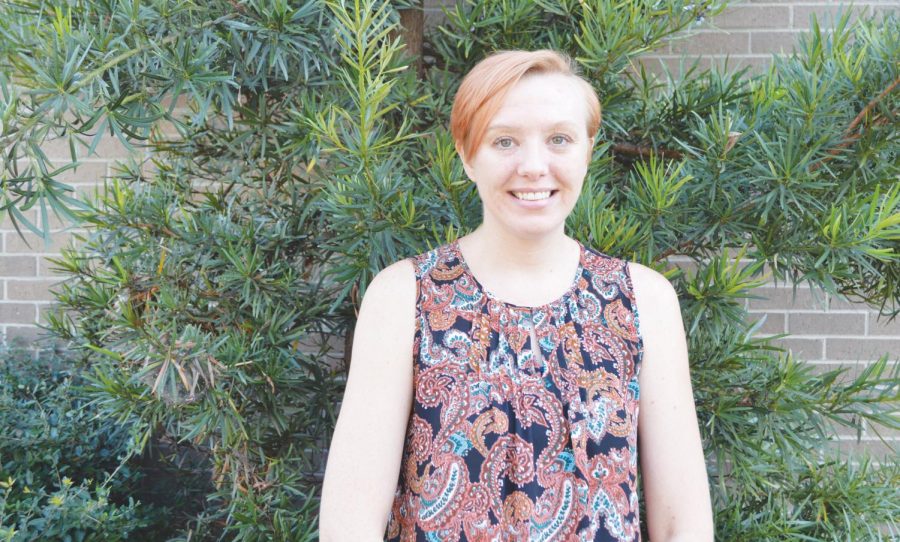Professor Spotlight: Dr. Erica Johnson
Photo by: Kyle Graham
This year Dr. Erica Johnson will publish her first book on the Haitian Revolution. Her research for the book was a part of her dissertation.
For Assistant Professor of History Dr. Erica Johnson, pursuing a career in history was the only career that made sense for her.
“It was what I was naturally good at,” Johnson said. “I like the idea of investigating something. Most people don’t think of history as us being detectives, but that’s what we are. We have this idea, we have to go find all of the information, the facts and the evidence. That’s fun for me.”
Johnson said because she was a strong writer and enjoyed investigative research, she considered pursuing English; however, having good history professors helped her discover her passion for history.
“This degree doesn’t have a lot of potential to make a lot of money, but I knew this was what I wanted to do,” Johnson said.
Johnson, who is originally from Oklahoma, decided to go to the University of Arlington for her master’s degree and to Florida State University for her Ph.D. Johnson said she chose Florida State University to work under a specific professor.
“Something that students don’t necessarily realize is when we go to graduate school, we aren’t going because that is the cool school,” Johnson said. “We go to places where there are professors we particularly want to work under.”
Using her love of investigation, Johnson started research for her dissertation on French-Atlantic history, specifically the French colonies in the Americas and the French Caribbean.
Johnson said she picked the French colonies for research by chance after having discussions with one of her history professors who researched the Haitian Revolution.
“I tend to be a very free spirit,” Johnson said. “Whatever comes at me and strikes my passion, I go for it.”
This year, her research will be published as a book.
“Most of us, that’s our goal: to get that dissertation turned into a book and to get published,” Johnson said. “You put your life into it.”
Compiling and expanding Johnson’s research from her dissertation has taken approximately five years to complete.
“This has actually been a long process,” Johnson said. “While you’re teaching, you don’t get to put a lot of time toward that. You teach three or four classes, you spend a lot of time preparing and grading. It has taken time.”
During the research process, Johnson said research consists of spending hours alone with historical documents.
“We spend an enormous amount of time by ourselves,” Johnson said. “In the classroom, we are in front of the students, but our research is all by ourselves.”
Through publishing the book, Johnson said she is able to share her research with others, rather than spending time alone researching.
“I’ll do anything to try to talk to people about research,” Johnson said. “Like I said, it tends to be very isolated. You don’t get to talk to a lot of people about what you look at. If you get to publish it, that is a way to have a conversation about it.”
The research portion of writing publications is a long process, Johnson said.
“We can spend months upon months researching,” Johnson said. “I spent nine months in France doing research for my dissertation. It just depends on how long.”
In addition to publishing a book, Johnson has also published journal articles and contributed to edited volumes.
